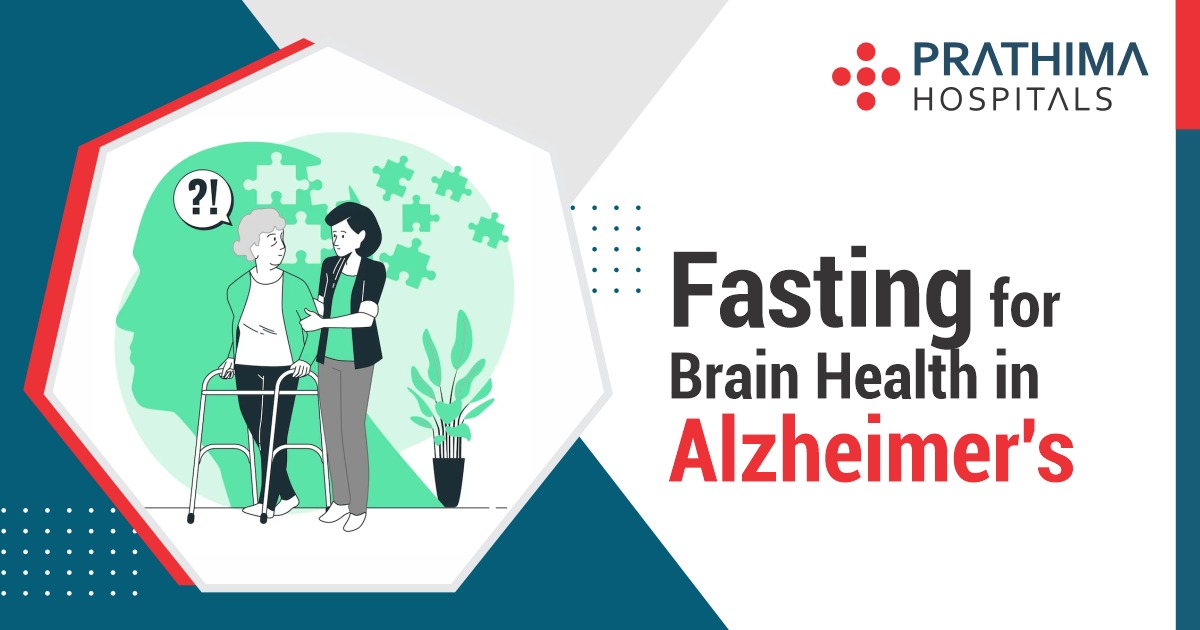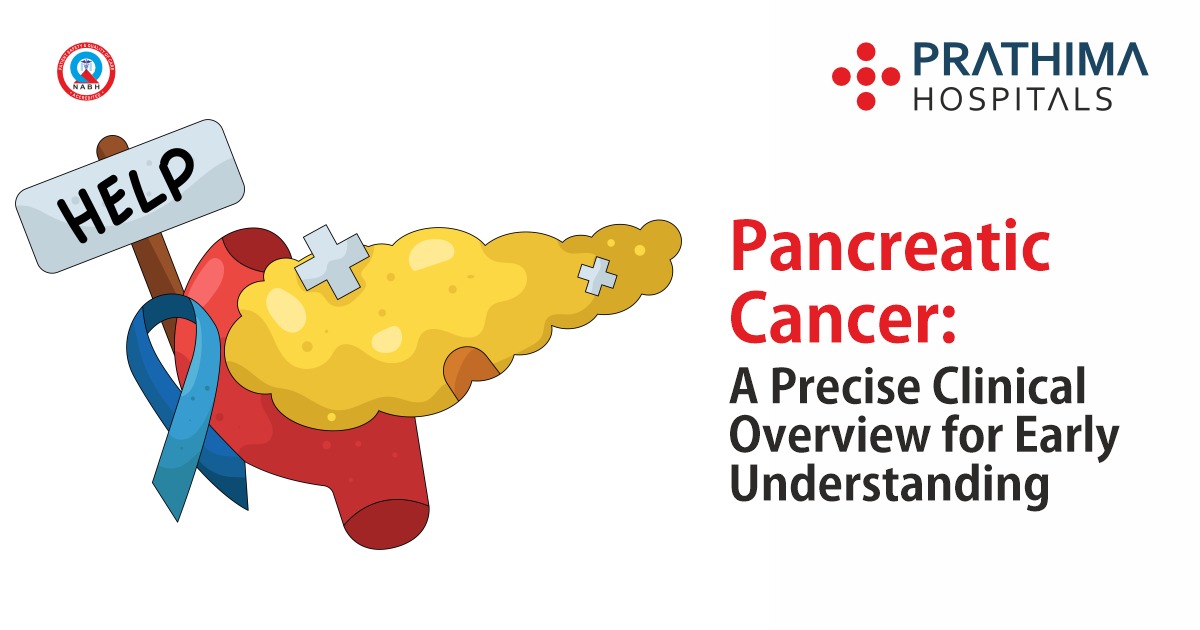A New Research found Alzheimer’s Hope through Intermittent Fasting!

Treatment for Alzheimer’s Disease
Introduction:
Emerging findings indicate that intermittent fasting might serve as a promising therapeutic avenue for addressing Alzheimer’s disease. In a recent study, mice subjected to a time-restricted feeding regimen exhibited enhanced memory and reduced accumulation of amyloid proteins in the brain, in stark contrast to the control group. Before that let’s understand what is Alzheimer’s Disease as suggested by the Best Neuro Hospital in Hyderabad.
Understanding Treatment for Alzheimer’s Disease:
Alzheimer’s disease is a progressive neurological disorder that primarily affects cognitive function and memory. It is the most common cause of dementia, a syndrome characterized by a decline in cognitive abilities severe enough to interfere with daily functioning and independence. Let’s delve into the details of Alzheimer’s disease:
Causes and Risk Factors:
The exact cause of Alzheimer’s disease is not fully understood, but it is believed to be a combination of many factors such as:
1. Genetic Factors: Genetics play a significant role in the development of Alzheimer’s disease. While the majority of cases are not directly inherited, there are certain genetic mutations that increase the risk. The most well-known genetic risk factor is the presence of the ApoE4 allele of the apolipoprotein E gene. People with one copy of ApoE4 are at an increased risk, while those with two copies have an even higher risk. However, having the ApoE4 allele does not guarantee the development of Alzheimer’s.
2. Age: Age is the single most significant risk factor for Alzheimer’s disease. The prevalence of the disease increases dramatically with advancing age. While Alzheimer’s can affect individuals in their 40s or 50s (early-onset Alzheimer’s), it is more commonly diagnosed in individuals over 65.
3. Family History: Having a family history of Alzheimer’s disease increases the risk. If a first-degree relative (parent or sibling) has had the disease, the risk is somewhat elevated. However, the overall genetic contribution to sporadic (non-familial) cases of Alzheimer’s is complex and not fully understood.
4. Lifestyle and Cardiovascular Factors: Several lifestyle and cardiovascular factors are associated with an increased risk of Alzheimer’s disease. These include:
- Cardiovascular Health: Conditions that affect the heart and blood vessels, such as hypertension, high cholesterol, and diabetes, can increase the risk of Alzheimer’s. A healthy heart is closely linked to a healthy brain.
- Physical Inactivity: Lack of regular physical exercise can contribute to cardiovascular problems, obesity, and insulin resistance, which are risk factors for Alzheimer’s.
- Diet: Poor diet, especially one high in saturated and trans fats, can negatively impact cardiovascular health and increase the risk of Alzheimer’s.
- Smoking: Smoking damages blood vessels and reduces oxygen supply to the brain, which may contribute to cognitive decline.
- Mental and Social Engagement: Engaging in mentally stimulating activities and maintaining social connections might help reduce the risk of cognitive decline.
5. Environmental Factors: Exposure to certain environmental factors might contribute to the risk of Alzheimer’s disease, though more research is needed in this area. Some studies suggest that long-term exposure to certain air pollutants and toxins could be associated with a higher risk.
6. Down Syndrome: People with Down syndrome have an increased risk of developing Alzheimer’s disease as they age. The genetic abnormality that causes Down syndrome is also linked to an increased production of beta-amyloid, a protein associated with Alzheimer’s.
7. Head Trauma: A history of severe head trauma, especially repeated injuries, has been associated with a higher risk of Alzheimer’s disease later in life.
Pathology:
Alzheimer’s disease is characterized by the accumulation of abnormal protein aggregates in the brain. The two main types of protein aggregates are beta-amyloid plaques and tau tangles. Beta-amyloid plaques form outside neurons and disrupt cell communication, while tau tangles form inside neurons and disrupt their internal structure.
Stages of Alzheimer’s Disease as per the Best Neurologist in Kachiguda:
Alzheimer’s progression is often divided into several stages:
- Preclinical Stage: Changes are happening in the brain, but symptoms are not yet noticeable.
- Mild Cognitive Impairment (MCI):Mild memory and cognitive problems are evident but don’t significantly interfere with daily life.
- Mild Alzheimer’s Disease: Memory gaps and cognitive impairments become more noticeable and start affecting daily activities.
- Moderate Alzheimer’s Disease: Memory and cognitive deficits worsen, affecting language, reasoning, and awareness of surroundings.
- Severe Alzheimer’s Disease: Individuals lose the ability to communicate, recognize loved ones, and perform basic self-care tasks.
Clinical Presentation:
Alzheimer’s disease manifests primarily as cognitive and memory deficits. Common symptoms include forgetfulness, difficulty with language (aphasia), impaired reasoning and problem-solving (apraxia), and challenges in completing familiar tasks (agnosia). Behavioral and psychological symptoms may also occur, such as mood swings, agitation, aggression, and withdrawal.
Diagnosis:
Diagnosis is usually based on medical history, cognitive assessments, neuropsychological testing, brain imaging (MRI, PET scans), and ruling out other potential causes of cognitive decline. According to the Best Neurologist in Kukatpally, early diagnosis is important for intervention and management.
New Findings in Alzheimer’s Disease:
In a recent breakthrough study conducted at the University of California San Diego School of Medicine, researchers have demonstrated that it is possible to address the disruptions in circadian rhythms associated with Alzheimer’s disease by employing time-restricted feeding, a form of intermittent fasting focused on restricting the daily eating window while not reducing the overall food intake.
The study, which was published on August 21, 2023, in the journal Cell Metabolism, showcased that mice subjected to a time-restricted feeding regimen exhibited enhancements in memory retention and a reduction in the buildup of amyloid proteins in the brain.
Senior author of the study, Paula Desplats, PhD, who is a professor in the Department of Neurosciences at UC San Diego School of Medicine, noted, “For many years, we assumed that the circadian disruptions seen in people with Alzheimer’s are a result of neurodegeneration, but we’re now learning it may be the other way around — circadian disruption may be one of the main drivers of Alzheimer’s pathology.” She further explained that this insight presents circadian disruptions as a promising target for potential Alzheimer’s treatments, with the study’s findings serving as a proof-of-concept for a simple and accessible means to rectify these disruptions.
To test this hypothesis, the researchers employed a mouse model of Alzheimer’s disease, subjecting the mice to a time-restricted feeding schedule that confined their eating to a six-hour window each day. In terms of human applicability, this would entail approximately 14 hours of fasting daily.
In contrast to control mice, which had food accessible at all times, the mice adhering to the time-restricted schedule exhibited improved memory, reduced nighttime hyperactivity, more regular sleep patterns, and fewer sleep disturbances. Moreover, the mice following the time-restricted regimen performed better on cognitive evaluations, indicating that this feeding schedule could ameliorate the behavioural symptoms associated with Alzheimer’s disease.
Beyond behavioural improvements, the researchers also observed molecular-level enhancements. The genes linked to Alzheimer’s and neuroinflammation displayed altered expression patterns in mice adhering to the restricted feeding schedule. Furthermore, the feeding regimen contributed to a reduction in the accumulation of amyloid proteins in the brain a hallmark characteristic of Alzheimer’s disease.
Given that the time-restricted feeding approach had a notable impact on the progression of Alzheimer’s in mice, the researchers are optimistic about its potential clinical applicability, particularly as the approach involves a lifestyle modification rather than a pharmaceutical intervention.
Desplats highlighted, “Time-restricted feeding is a strategy that people can easily and immediately integrate into their lives.” She continued by emphasizing that if the outcomes can be replicated in human trials, this method could offer a straightforward means to significantly enhance the quality of life for individuals living with Alzheimer’s, as well as their caregivers.
In conclusion, the groundbreaking study conducted by UC San Diego School of Medicine researchers sheds light on the potential of time-restricted feeding to counteract circadian disruptions associated with Alzheimer’s disease. The study’s findings not only present a novel approach to treating Alzheimer’s but also offer hope for a simple and practical strategy that could significantly impact the lives of those affected by this debilitating condition.
.
.
.
.
.
For More Details:
📞:: 733 733 6600 | 040 4345 4345
🌐:: https://prathimahospitals.com/book-appointment/






Warning: Undefined variable $req in /home/u885608126/domains/prathimahospitals.com/public_html/wp-content/themes/prathimahospitals/functions.php on line 294
Warning: Undefined variable $commenter in /home/u885608126/domains/prathimahospitals.com/public_html/wp-content/themes/prathimahospitals/functions.php on line 295
Warning: Trying to access array offset on value of type null in /home/u885608126/domains/prathimahospitals.com/public_html/wp-content/themes/prathimahospitals/functions.php on line 295
Warning: Undefined variable $aria_req in /home/u885608126/domains/prathimahospitals.com/public_html/wp-content/themes/prathimahospitals/functions.php on line 295
Warning: Undefined variable $req in /home/u885608126/domains/prathimahospitals.com/public_html/wp-content/themes/prathimahospitals/functions.php on line 298
Warning: Undefined variable $commenter in /home/u885608126/domains/prathimahospitals.com/public_html/wp-content/themes/prathimahospitals/functions.php on line 299
Warning: Trying to access array offset on value of type null in /home/u885608126/domains/prathimahospitals.com/public_html/wp-content/themes/prathimahospitals/functions.php on line 299
Warning: Undefined variable $aria_req in /home/u885608126/domains/prathimahospitals.com/public_html/wp-content/themes/prathimahospitals/functions.php on line 300
Warning: Undefined variable $commenter in /home/u885608126/domains/prathimahospitals.com/public_html/wp-content/themes/prathimahospitals/functions.php on line 303
Warning: Trying to access array offset on value of type null in /home/u885608126/domains/prathimahospitals.com/public_html/wp-content/themes/prathimahospitals/functions.php on line 303